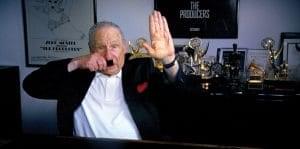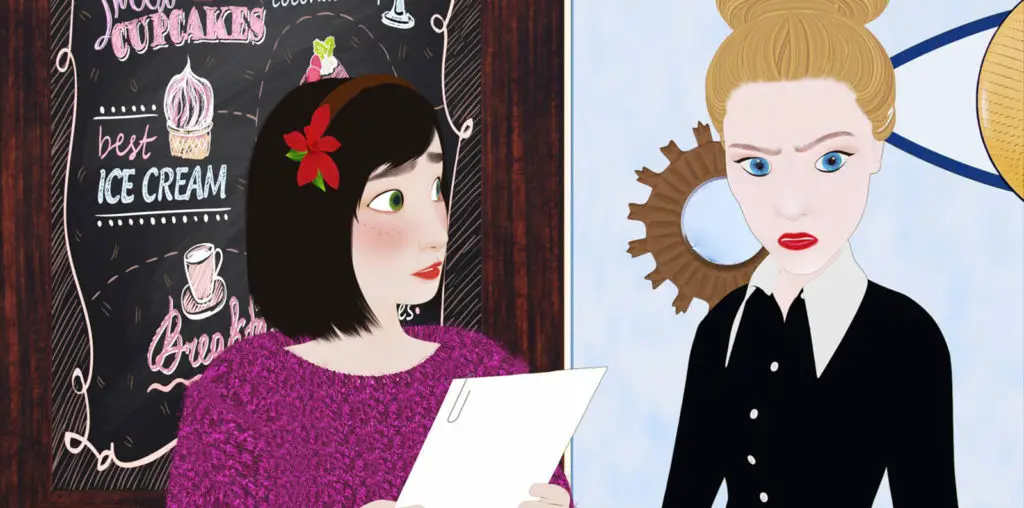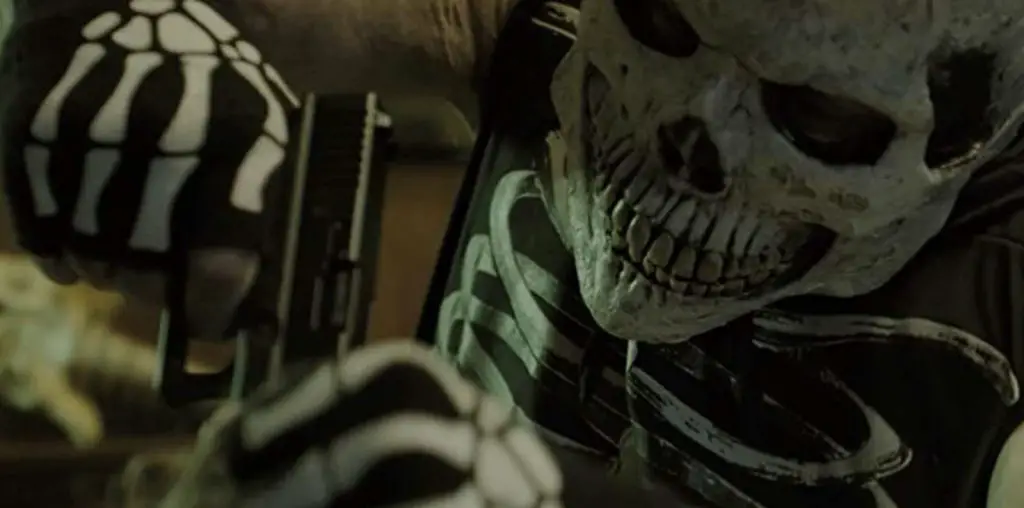
There’s a scene in The Pianist that ended my interest in watching holocaust films. In the Warsaw ghetto an SS thug pulls a Luger and shoots a pretty Jewish girl in the head. It comes early in the film. I saw it as if in slow motion, braced for it, heard the report of the pistol, and watched her fall. I knew it was a movie but movies can be more real than life. It was a watershed moment for me that made me reexamine why I watch movies, what I want from them. As it turns out, deep down I’m pretty shallow.
In that moment I felt that nothing of value was being added to my sense or knowledge of the holocaust. It was nothing more, at that point for me, than a gratuitous and sickening display I had seen before. As a film critic the tendency is to shape opinions as “general truth” but it’s important to note that this particular observation applies only to me. That moment may come differently or not at all for anyone else.
That’s not to say that holocaust films have no value, quite the contrary. Being informed about the 6,000,000 Jews murdered in the holocaust is requisite. As is being informed about the 100,000+ deaths in Darfur, or the famine killing or displacing 2,000,000 people in Ireland, understanding intellectually and emotionally that 800,000 Rwandans were slaughtered by their neighbors with machetes. An audacious writer might even point out that many thousands of Palestinian civilians and Israeli soldiers have died in conflict over the West Bank and Gaza strip. These are but a paltry few examples in a vast litany of the history of atrocity. You have to connect to these events. To ignore them is to be a privileged philistine emotionally unprepared to move through the world with compassion and understanding.

“…lively conversation with some of the funniest and well spoken people of our time. It’s always a treat to hear Mel Brooks talk. Age has not diminished his mind at all.”
However also know that you can be paralyzed by a certain kind of sadness. I’ve known people who believe they’ve done something by feeling bad. That’s not useful. The Pianist was my last holocaust film, or so I thought. Then I saw the first X-Men movie (I saw them out of order for you OCD nerds who just opened a new tab and started googling). Erik Lehnsherr (Magneto) is brought to a concentration camp as a child, separated from his parents and we’re right back in it. Then I encountered a documentary about an executioner entitled Mr. Death: The Rise and Fall of Fred A. Leuchter, Jr. and again the camps are invoked.
So I’ve had to face the fact that, to borrow shamelessly from William Faulkner: The past isn’t dead. With our high def sound/video in terabytes of eternal cloud memory it isn’t even past. Witness the Japanese obsession with the atomic bomb in popular culture. The seminal Anime film Akira opens with a nuclear explosion wiping out Tokyo. The bombing of Hiroshima and Nagasaki play over and over in different art like someone scratching a scar that itches. You can’t ever walk away; barbarism gets baked into the fabric of the culture. Terrible human suffering leaves a stain that won’t fade even a little for generations.
As part of Jewish culture it’s a critical part of family history to keep fresh, particularly given the vast numbers of family members (and subsequently children and grandchildren) who would be here now if the holocaust had not happened. Those of us outside the Jewish culture don’t have that personal family legacy of tragedy but it’s still critical that we wrap the emotions and knowledge of the holocaust and other unspeakable events into an unswerving resolve to act, to speak, and to do everything we can to stop future atrocities.
The question asked by Ferne Pearlstein of celebrity comics and holocaust survivors in her exceptional documentary The Last Laugh is could anything about these experiences ever be funny? Should we laugh?
Laughing in the face of horror and death is natural, a show of courage, a rebellion against fate. The bent of comedy is that misfortune (generally that of others) can be funny. Mel Brooks himself once famously said “Tragedy is when I cut my finger. Comedy is when you fall into an open sewer and die.” The shock value of a joke gives it extra swagger, the more transgressive and awful the better. The cops I know have the most shockingly awful extreme examples of dark humor. If you’ve ever played the game “Cards Against Humanity” you’ve indulged. Still, humor about the holocaust is a level of extreme I hadn’t even considered.
Pearlstein interviews Mel Brooks, Sarah Silverman, Gilbert Gottfried, and other comics about whether they can or should make the jokes. Opinions are on a spectrum from “Never” to “Anything can be funny.” A couple of the comics tell jokes and damn but they are funny, and horrible, and funny.
There’s a darker phenomenon touched on that’s always made me cautious about offensive humor and that is whether the audience is sophisticated enough to get the joke. Are they laughing with you or did you accidentally wander into a room full of nazis who are just delighted with the awful premise and have missed the sarcasm. Previous to the 2016 election I’d have comforted myself by saying that would be rare. I am apparently wrong about 45 or so percent of the American population (an aside here, I believe we must temporarily, sadly, suspend Godwin’s law for a while. When the American nazis go the f**k away we can reinstate it. We’ll have a party).
The part that will haunt me from this film is the cabaret that concentration camp prisoners would put on performing music, comedy, and drama. You’d want to think that in the situation you’d be a fighter 24/7 keeping the rage hot and never submit to even the slightest acceptance of the situation: to resist in all ways at all times. Relaxing enough to perform in a show or to be in the audience enjoying it boggles the mind and makes the abomination all the more disturbing. To see something normal happening in hell would be a reminder of life outside and that would be worse than hell itself.
Sarah Silverman impressed me pointing out that the admonishment to never forget has not resulted in stopping genocides and atrocities.
There are intensely uncomfortable moments offset by humor and lively conversation with some of the funniest and well spoken people of our time. It’s always a treat to hear Mel Brooks talk. Age has not diminished his mind at all. This film may take you to a place you’d rather not be but will inform your perception of the holocaust in a way that gives permission to safely examine those dark impulses to laugh at tragedy.
Sit down with The Last Laugh and have the last laugh over those who committed horrors in the past, are doing so now, and will in future.

The Last Laugh (2016) Directed by: Ferne Pearlstein. Written by: Robert Edwards, Ferne Pearlstein. Starring: Mel Brooks, David Steinberg, Gilbert Gottfried, Sarah Silverman, Renee Firestone, Klara Firestone.
9 out of 10


